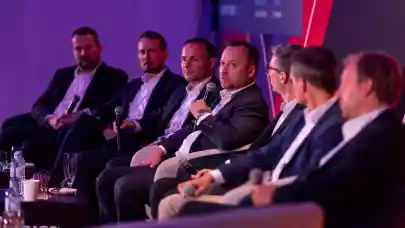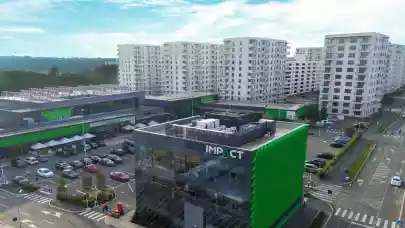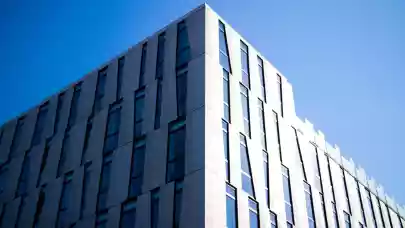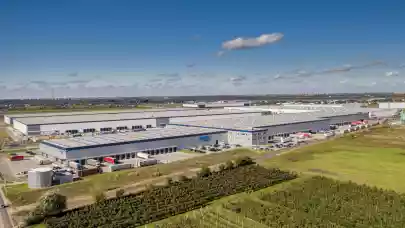
Despite the slowdown, the CEE investment market remains strong with local investors playing a more vital role than ever. The most active dealmakers discussed what sells today and will drive market activity tomorrow at CEE Property Forum 2023 in Vienna.
As the appetite of major local investors in CEE is bigger than their market some of them try to dive into the Western European markets where companies adjust their businesses quicker to the new normal. The majority of sizeable local institutional and private investors however will continue to rule their land – said most of the participants of a panel devoted to the local investors’ future attitude.
Gábor Zeller, Senior Director, Capital Markets, iO Partners was not surprised by that and reminded the audience that many Western European institutional investors had already left the CEE region in search of better conditions elsewhere. However, he welcomed the fact that some of the big players from Hungary and the Czech Republic have seized the opportunity in Poland and made significant investments there.
Hungarian company Wing has two in one: it is an active developer and investor in the biggest economy in CEE, Poland. „We have been spending money on development firms rather than assets. We see the risks but are among long-term players and observe good opportunities in residential, retail and logistics market,” said Wing’s Péter Kocsis MRICS, Deputy CEO, responsible for strategy, risk and MIS-Data. He added that at the same time, Wing tries to make good deals in Western Europe as well and the company will continue to broaden its presence in more countries of the continent.
There are different approaches for ideal geographical diversion for investors. A good example of that is Indotek Group, representing Hungary which has been quickly expanding in Southern Europe via buying offices, retail assets, hospitality and residential projects. Krisztián Hornok MRICS, Managing Director, International Transactions and Asset Management emphasized that „the Hungarian market is small for us and Indotek has turned to markets of Spain, Italy and Greece and partially to Serbia and Croatia.”
At this point, Mark Richardson, Head of Investment, Savills Poland, who chaired the panel put a question to the participants: Does it mean that CEE and SEE are losing out in competing for the investors’ money? Mr Hornok reflected: „We are in the pricing discovery period and investors like us prefer making deals in Western Europe which has already adjusted its prices and conditions to the changed financial and economic environment. In Bulgaria and Romania, people still live in a different world, asking unrealistically high prices for their assets. We continue to pick good retail assets across Southern Europe but shopping centres are a bit tricky assets that make us cautious,” he added acknowledging that banks keep landing with a conservative approach and developers have to use more equity than debt.
Alexander Klafsky MRICS, Managing Partner, FLE had his answer to this question too, saying „Today’s volatile market shows that the CEE region is for long-term investors, opportunistic ones will experience pains if they want to close deals too quickly.” He added that the bordering Austria is still getting investments from West Europeans and no major CEE player is competing with them on the Austrian market. „If all players were waiting for the lowest prices then there would be no deal at all,” he said. Therefore it is obvious for his company to go ahead and get deals as soon as possible.
He disagreed with some fellow panellists who said the office sector was not attractive enough. He also disclosed that although Krakow’s office market was hit hard, all other major cities in Poland are in relatively healthy condition. „Logistics in Poland has got a big push from the fact that the war in Ukraine made industrial hubs more interesting for Western manufacturers,” he explained.
Uncertainty was the expression everyone used in this panel. Martin Ofner, Head of Market Analysis at Arnold Investments, specializing in brokering international real estate investments, said this year was gloomy but investors, see 2024 with cautious optimism. He expects international institutional investors to come back. „Private foreign capital and local investors are working together and that is a good sign,” he added
Karol Pilniewicz, CIO, Futureal was not so optimistic saying that the market still has to wait at least 6-12 months for the prices to bottom out. „Second-generation shopping centres can be attractive for us and we also turn to the logistics sector and try to extend our landbank for future industrial projects,” he informed.
Pavel Streblov MRICS, Business Director CRE, Penta Real Estate expressed his view on the retail market too. „We see saturation of the shopping centre market but witness high street retail rebound. Investing in high street shops can be attractive again in the medium term,” he said adding that owners of those shops are willing to keep their assets rather than selling them now at a relatively low price. He was very much in favour of local investors using the momentum and seizing opportunities occurring at home rather than competing with bigger players in the Western European markets.



